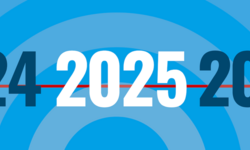
Your Right to Cash and the Digital Euro
epicenter.works has analysed the European Commission’s proposals on the establishment of a digital euro and the legal tender status of euro banknotes and coins, both introduced on 06.06.2023. In our analysis we look at the proposals from a fundamental rights angle and focus especially on privacy concerns. We welcome the “Right to Cash” for its potential to enhance financial privacy and eurozone stability. Furthermore, we generally endorse the idea behind the digital euro as an alternative to privacy invasive digital means of payment like PayPal or Visa. To fulfill this purpose, however, the digital euro must meet the following three requirements:
-
It must offer privacy comparable to cash.
-
It must not jeopardize the eurozone’s stability, e.g. ensuring protection against double spending in offline transactions.
-
It should be developed as a public digital infrastructure based on free and open-source software, transparent standards and participatory procedures.
The Right to Cash
Cash, represented by banknotes and coins, has long been the bedrock of financial transactions. It offers unparalleled privacy, inclusivity, and fosters financial literacy. Its tangible nature provides a sense of security and resilience, especially during power outages. Furthermore, cash ensures societal participation for marginalised groups, such as the elderly, undocumented, and the unbanked. Given its significance, the European Union must prioritise the widespread availability and acceptance of analog means of payment.
The proposal's intent to solidify the status of euro banknotes and coins as legal tender is commendable. However, the circulation of cash is under threat in several EU Member States, which is not compatible with non-discrimination standards. The problem is not the trend towards cashless payments but the trend to refuse cash payments as an alternative. If cash is not readily available or accepted, vulnerable groups are potentially excluded. Therefore, we welcome the proposal’s emphasis on the importance of effective access to cash throughout the EU territory. The unilateral refusal of cash by merchants is a significant concern for vulnerable groups. The proliferation of “No Cash” signs in shops across the EU is a testament to the growing challenge. Cash can be refused on temporary and justified grounds, but Member States have far reaching powers to add further exemptions. In a nutshell, the success of the right to cash can be measured if „No Cash“ signs become a thing of the past and by how much the availability of cash will improve (e.g. ATMs in rural areas).
The value of any legislation hinges on its robust enforcement. We therefore want to highlight the importance of the structured enforcement mechanism outlined in the proposal and obliging Member States to designate national competent authorities, who sadly don’t need to be independent regulators. These authorities have to ensure sufficient and effective access to cash, reporting on their efforts, and intervening when necessary. A crucial component of the enforcement mechanism is the Commission’s power to independently assess the situation in each Member State and prescribe measures if the Member State failed to act. Moreover, we believe complaints raised by affected groups are an integral part of any proper enforcement infrastructure. Here the proposal must be drastically expanded to establish procedural guarantees for the complainant and civil society organisations must be included in the complaint mechanism.
Besides enforcement, transparency is paramount for the success of any legislative proposal. The annual reporting obligations for Member States could serve as a foundation for an EU-wide discussion on cash access. Hence, on top of the reporting obligations, we advocate for the compulsory publication and translation of these reports by the European Commission to ensure they are accessible. Furthermore, we recommend to include complaint data (e.g. on types of stakeholders), methodologies of data collection, and remedies taken in these reports to further enhance transparency.
Digital Euro
The global shift towards digital currencies has prompted the European Union to conceptualise the digital euro. Envisioned as an electronic counterpart to cash, the digital euro aims to be available both online and offline. While the digital realm offers numerous transaction methods, the digital euro tries to emphasise privacy. In fact, however, the digital euro as proposed by the European Commission raises several fundamental concerns regarding privacy. This concerns mostly transaction data and identifiers which are justified with the settlement mechanism and Anti-Money Laundering (“AML”) measures.
The proposed architecture for the digital euro involves the Eurosystem’s settlement infrastructure, under the watchful eye of the European Central Bank (ECB). Offline transactions, while offering flexibility, lack clarity on aspects like liability in case of fraudulent activities.
The digital euro seeks to offer a level of privacy comparable to cash transactions, setting it apart from other digital payment systems. However, the proposal needs to dive deeper into ensuring robust privacy safeguards, especially concerning user data and interactions with the ECB and payment service providers (PSPs).
The integration of the European Digital Identity Wallet with the digital euro is a notable aspect of the proposal. This integration aims to streamline transactions and enhance user experience. However, the potential privacy implications of this integration of a payment system with an EU-wide system to identify everyone raises serious privacy concerns. According to the plans of the Commission a single App will become the critical bottleneck for payment, health services, public transport, social media logins and every eGovernment service.
Ensuring that the digital euro remains impervious to threats and vulnerabilities is crucial for its widespread adoption and trust. Ensuring that the digital euro does not undermine the stability of the Eurozone, especially by safeguarding against issues like double spending, is of paramount importance, too. The proposal therefore delves into the potential implications of the digital euro on monetary policy and financial stability. Right now, however, the security of the offline digital euro completely rests upon proprietary secure chips in popular smartphones that are all produced outside the EU.
The way forward
While the right to cash is a welcome and uncontroversioal bill that could move fast, the digital euro will need a lot of work before that law complies with fundamental rights. Sadly, both proposals are negotiated in one package by the same set of MEPs. The European Parliament plans a public hearing on 28 November 2023, the draft report is scheduled in the lead ECON committee by 9 Jannuary by the Rapporteur Stefan Berger (Germany, EPP). On 23 January 2024 is the deadline for amendments with a final vote scheduled on 9 April. The LIBE committee will have competency on data protection aspects of the digital euro.
In conclusion, the European Commission’s proposals on the digital euro and the right to cash are significant steps in the evolution of the financial landscape. epicenter.works’ analysis highlights several areas of improvement regarding privacy, inclusivity, and stability in these proposals. As the financial world continues to evolve, however, it is imperative to ensure that the rights and interests of all individuals are upheld.
Find here the full analysis including a more detailed breakdown of the issues raised.
Since you're here
… we have a small favour to ask. When governments constantly demand new surveillance measures, collect more and more data about us, or when corporations increase their profits at our expense, we start campaigns, write analyses or demand our rights in the courts. For all of this we need your support. Help us form a strong voice for civil society!
Donate Now!



